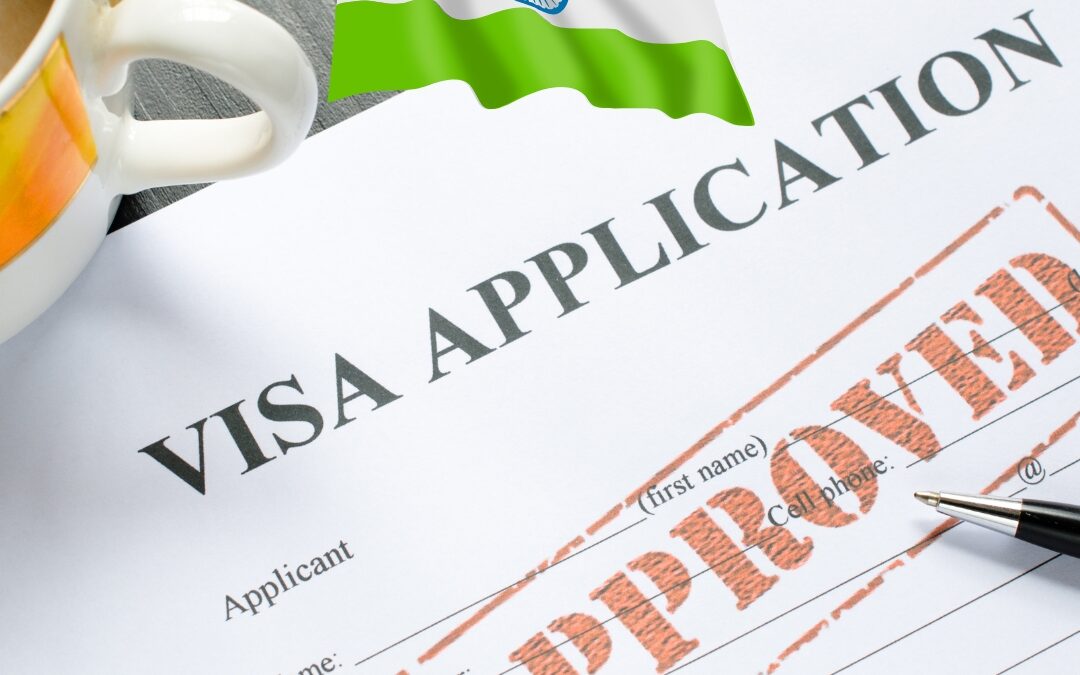Introduction
India’s captivating blend of ancient traditions and modern development continues to attract visitors from diverse corners of the globe, including travelers from South Africa and Ireland. Understanding the specific entry requirements is essential for a smooth travel experience to this South Asian nation. The comprehensive information about obtaining an INDIAN VISA FOR SOUTH AFRICAN CITIZENS provides crucial guidance for South African passport holders, while the streamlined process for an Indian Visa for Irish Citizens outlines the application procedure for Irish nationals. This guide explores the electronic visa system available to both nationalities, detailing requirements, application processes, and important considerations for travelers from these distinct regions planning their Indian journey.
Understanding India’s Electronic Visa System
India has established an efficient electronic visa system that simplifies the application process for citizens of eligible countries, including both South Africa and Ireland. The e-Visa program allows travelers to obtain their authorization entirely online without visiting Indian diplomatic missions in person. This digital platform typically processes applications within 72 hours, though applicants are advised to apply at least one week before their planned departure. The Indian e-Visa is available for various purposes including tourism, business, conference attendance, and medical visits, with each category having specific conditions and validity periods. The authorization is electronically linked to the traveler’s passport and has revolutionized access to India for international visitors, making the application process significantly more efficient compared to traditional visa methods.
Indian Visa Requirements for South African Citizens
South African citizens benefit from India’s electronic visa system, which provides a streamlined application process for various travel purposes. The basic requirements include a valid South African passport with at least six months of remaining validity from the date of arrival in India and at least two blank pages for immigration stamps. Applicants need a recent digital photograph meeting specific technical specifications regarding size, background, and image quality. Additional requirements include a valid email address for communication and document delivery, a credit or debit card for payment of the visa fee, and detailed travel information including intended port of entry and accommodation details. While not mandatory for the application itself, travelers should have proof of sufficient funds and return flight tickets available, as these may be requested upon arrival in India.
Indian Visa Requirements for Irish Citizens
Irish citizens similarly qualify for India’s electronic visa system, with requirements largely mirroring those for South African applicants. Irish passport holders need a valid travel document with adequate validity beyond their intended stay in India. The application process requires standard documentation including a digital photograph, valid email address, payment method, and travel itinerary details. Irish citizens enjoy the same e-Visa categories as other eligible nationalities, including tourist, business, and medical visas. The processing time and validity periods are consistent across eligible countries, though Irish passport holders should ensure all documents are accurately completed to avoid processing delays. The system provides equal accessibility to travelers from both South Africa and Ireland, reflecting India’s streamlined approach to visa issuance for qualified nations.
Application Process for Both Nationalities
The application process for both South African and Irish citizens follows an identical digital pathway through India’s official e-Visa portal. Applicants begin by completing the online form with accurate personal information that matches their passport details exactly. The form requires comprehensive passport information, personal details, travel plans, and answers to security-related questions. Applicants must upload a recent digital photograph meeting specified requirements and pay the processing fee through secure online payment channels. The entire process typically takes approximately 20-30 minutes to complete if all necessary documents and information are prepared in advance. Upon approval, applicants receive their e-Visa via email, which they must print and present alongside their passport upon arrival in India.
Required Documentation and Preparation
Both South African and Irish citizens must prepare specific documentation before beginning their Indian e-Visa application. The most critical requirement is a valid passport with sufficient validity remaining from the planned arrival date in India. Applicants need a digital photograph that meets the technical specifications outlined on the application portal. A working email address is essential for communication and receipt of the approved visa, while a valid credit or debit card is necessary for payment processing. While not required during the online application, travelers should have supporting documents available, including flight reservations, accommodation details, and evidence of sufficient financial means. These documents may be requested by immigration officials upon arrival in India.
Processing Timelines and Visa Validity
Understanding processing timelines is crucial for effective travel planning for both South African and Irish citizens. The Indian e-Visa system typically processes applications within 72 hours, though applicants are advised to apply at least one week before their planned travel dates to accommodate potential delays. The e-Visa for tourist purposes is typically valid for 365 days from the date of grant, allowing multiple entries with each stay not exceeding 90 days. Business e-Visas share similar validity but are specifically for commercial activities. Medical e-Visas have shorter validity periods aligned with treatment schedules. Both South African and Irish passport holders enjoy the same validity periods and conditions, reflecting the standardized nature of India’s e-Visa system across eligible nationalities.
Entry Procedures and Compliance Requirements
Upon arrival in India, both South African and Irish citizens must comply with specific entry procedures. Travelers must present their printed e-Visa along with their valid passport at designated e-Visa counters at Indian airports. Immigration officials may request to see proof of sufficient funds for the duration of the stay and evidence of return or onward travel. The e-Visa specifically allows for tourism, business meetings, or medical treatment but does not permit employment, journalism, or other professional activities without appropriate additional authorization. Visitors must respect the duration of stay granted and cannot extend their e-Visa while in India without departing and reapplying. Understanding these compliance requirements helps ensure a smooth entry process and enjoyable stay in India.
Important Considerations for Travelers
Several important considerations can enhance the travel experience for both South African and Irish citizens visiting India. Understanding local customs and regulations, particularly regarding dress codes in religious sites and photography restrictions, contributes to a more respectful and enjoyable visit. Health precautions, including appropriate vaccinations and comprehensive travel insurance with medical coverage, are essential for all visitors. Familiarizing oneself with basic Hindi phrases can greatly enhance interactions with local communities. Seasonal weather patterns should also inform activity planning and packing decisions, as India experiences significant climatic variations between regions. Currency exchange considerations involve familiarization with the Indian rupee, and while credit cards are widely accepted in urban areas, carrying local currency is advisable for rural visits.
Cultural Integration and Practical Tips
India offers a rich cultural experience that both South African and Irish visitors will find uniquely rewarding. South African travelers may find some similarities in diverse cultural landscapes, while Irish visitors will encounter a society with distinct customs and practices different from European norms. Language barriers can be mitigated by learning basic Hindi phrases, though English is widely spoken in tourist areas and major cities. Transportation systems vary widely across India, with options including domestic flights, trains, buses, and auto-rickshaws. Indian cuisine features diverse regional specialties with varying spice levels, though international food options are available in urban centers. Respecting local traditions demonstrates cultural sensitivity and enhances the travel experience for visitors from both nations.
Conclusion
The Indian visa process for South African and Irish citizens demonstrates the efficiency and accessibility of India’s electronic visa system. Both nationalities benefit from streamlined online applications, reasonable processing times, and standardized requirements that facilitate travel to this diverse South Asian nation. By understanding the specific requirements, preparing necessary documentation in advance, and following the application guidelines carefully, travelers from both South Africa and Ireland can ensure a smooth and efficient visa approval process. The key to successful travel to India lies in careful preparation, attention to application details, and respect for local customs and regulations. With proper planning, citizens of both nations can look forward to experiencing India’s remarkable historical sites, cultural richness, and geographical diversity with confidence and ease, creating memories that will last a lifetime while ensuring compliance with Indian immigration requirements throughout their visit.





